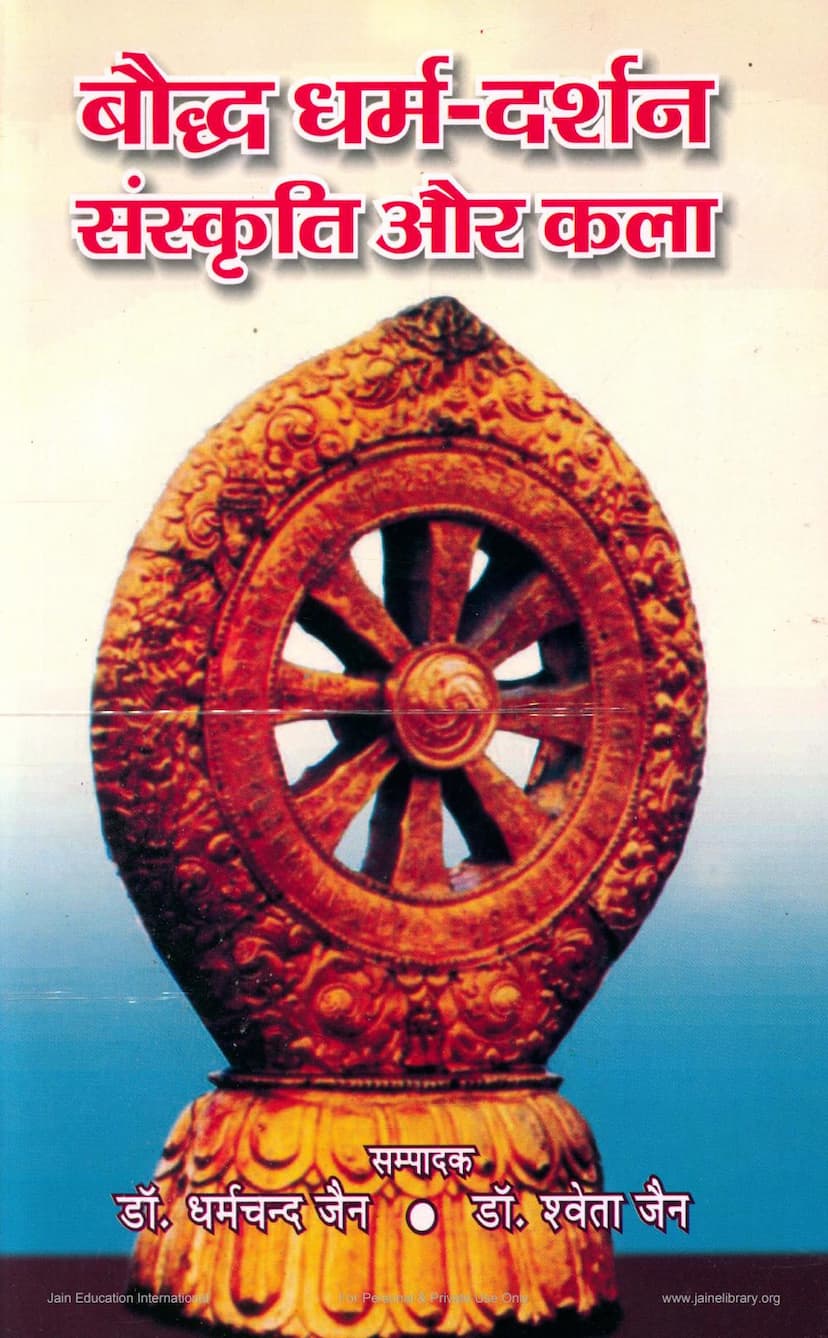Bauddh Dharm Darshan Sanskruti Aur Kala
Added to library: September 1, 2025

Summary
This book, "Bauddh Dharm Darshan Sanskruti aur Kala" (Buddhist Philosophy, Culture, and Art), edited by Dharmachand Jain and Shweta Jain, published by Bauddh Adhyayan Kendra, is a collection of scholarly articles exploring various facets of Buddhism.
The book emphasizes that Buddhism has profoundly influenced Indian thought, art, and culture for centuries, making its study essential for a complete understanding of Indian civilization. The editors highlight that Buddhist thought remains relevant and beneficial even in the modern era, offering solutions for liberation from suffering, stress reduction, mental purification, and world peace.
The compilation covers a wide range of topics, including:
Philosophical Aspects:
- The utility of studying the Tripitakas.
- Key Buddhist concepts such as Anātman (non-self), Śūnyatā (emptiness), Pratītyasamutpāda (dependent origination), Kṣaṇikavāda (momentariness), Nirvikalpaka (non-conceptual perception), Śamatha (calm abiding), and Vipassanā (insight meditation).
- Human psychology from a Buddhist perspective.
- The existence of external objects in Buddhist philosophy (Bahyārtha-Astitva-Vāda).
- The concept of Karma.
Social and Cultural Dimensions:
- Buddhism's relevance to social justice, equality, friendliness (Maitrī), and compassion (Karuņā).
- The role of Buddhism in the upliftment of Dalits.
- Democratic values present in Pali literature.
- Buddhism's contribution to communal harmony and resolving sectarian discord.
- The concept of social justice in Buddhism, examining freedom, equality, and fraternity.
- The position of women in Buddhism, discussing their upliftment and the establishment of the Bhikṣuṇī Sangha.
- Buddha's views on social justice concerning Shudras and women.
- An evaluation of Buddha's perspective on social justice, with some scholars suggesting he focused more on moral reform than fully addressing social problems.
- The significance of the four Brahmavihāras (Maitrī, Karuņā, Muditā, and Upekṣā) for positive human psychology and ethical conduct.
- The relevance of Panchasheel (five moral precepts) in the contemporary world and their connection to international relations, as exemplified by Jawaharlal Nehru's Panchsheel.
- The role of Buddhism in preventing violence and terrorism, advocating for peace, compassion, and the Middle Path.
- Buddhism's approach to social justice, exploring its stance on caste, gender, and the liberation of the downtrodden, with reference to Dr. B.R. Ambedkar's perspective.
- The democratic values found in Pali literature, referencing concepts like collective decision-making, acceptance of criticism, and the importance of assemblies.
- The importance of Buddhist psychology, particularly Vipassanā, in addressing modern psychological challenges and its integration into higher education.
- A discussion on the practicality and contemporary relevance of Buddhist philosophical principles like Śūnyavāda (emptiness) as a counterpoint to consumerist and materialistic values.
- The concept of Karma in Buddhism and its implications for rebirth and anātman (non-self).
- An overview of Buddhism in modern times, highlighting its enduring philosophy and the contributions of scholars and reform movements.
Artistic Contributions:
- The profound contribution of Buddhism to Indian art, including architecture, sculpture, and painting.
- The influence of Buddhist art on the development of modern art, tracing its evolution through various periods and regions.
- The interconnectedness of Buddhist art and religion, and their mutual contributions.
- The purpose and significance of Ashvaghosha's epic poems, "Buddhacharita" and "Saundarananda," in conveying Buddhist teachings on detachment from worldly pleasures and the pursuit of wisdom, morality, and concentration.
- The role of Buddhist art in propagating Buddhist philosophy and attracting followers, with examples from cave paintings and sculptures across India and Central Asia.
The book draws upon the contributions of various scholars who presented their research at a national seminar on "Buddhism and Buddhist Philosophy in the Modern Context" organized by the Buddhist Studies Center at Jai Narain Vyas University, Jodhpur, on February 5-6, 2011. The collected articles offer a comprehensive perspective on Buddhism's enduring impact on India and the world.